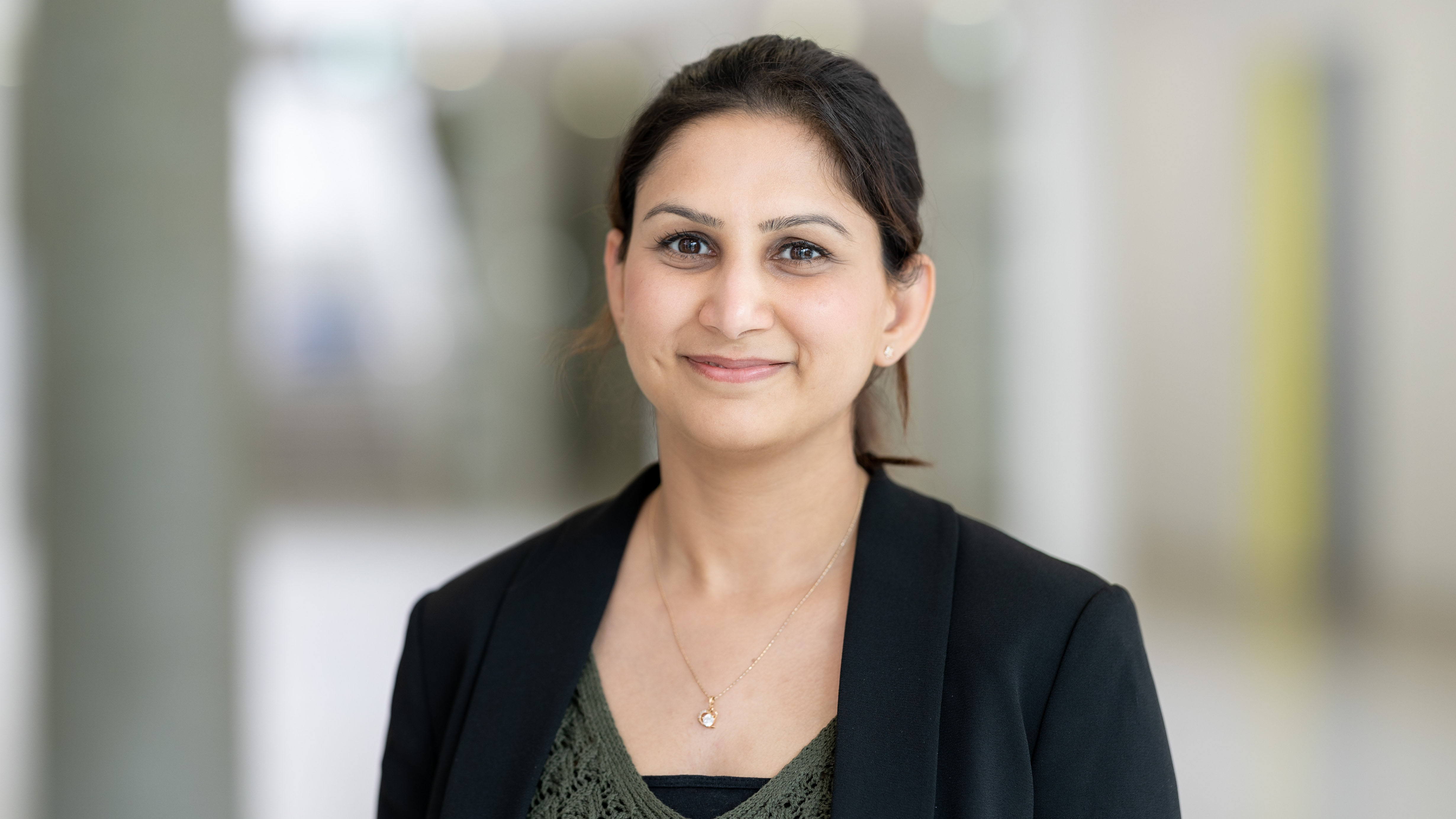
Why I do Research: Shaista Khaliq
At the Intersection of Instrumental Chemistry and Biology
- von Juliana Fischer
- 30.01.2025
Shaista Khaliq studies how animals, plants, and parasites are interconnected within ecosystems. She employs isotope analysis, a method in instrumental analytical chemistry, to investigate where organisms obtain their nutrients and how parasites influence their hosts. Shaista Khaliq is currently finalizing her dissertation, having previously completed her Master’s degree in Water Science at the University of Duisburg-Essen (UDE).
Using isotope analysis, you can determine from which source animals get their energy and nutrients. How do you approach this?
I analyse the composition of amino acids, which are the building blocks of proteins. In doing so, I examine the distribution of isotopes—variants of a chemical element with differing numbers of neutrons. This analysis allows me to determine whether an organism derives its nutrients from plants, microbes, or other animals.
How do you study the relationship between parasites and hosts?
In a controlled study, I investigated the relationship between sticklebacks and tapeworms. Tapeworms grow extremely quickly and have a significant impact on their hosts. Using amino acid isotope analysis, I identified clear changes, particularly in the sticklebacks’ liver, where the immune system responds to the parasitic infection.
What must be considered when conducting isotope analysis?
Isotope analysis is a precise method in instrumental chemistry that requires great attention to detail. A key part of my work is developing and optimising new analytical methods. By adhering to strict protocols, I ensure reliable and reproducible results. Only with this level of precision can we draw robust conclusions about nutrient sources and energy transfer between hosts and parasites.
What advice would you give to students who aspire to become scientists?
The path to a career in science is often challenging, with many ups and downs. It’s important to be patient with yourself and to recognise that negative results are a valid and valuable part of the research process. Open communication and teamwork are also essential for overcoming challenges. I gained valuable experience through the Integrated Research Training Group (IRTG), which offered opportunities like international summer schools, conferences, and research stays, broadening my perspective and supporting my scientific journey.
Further Information
Shaista Khaliq, Mail: shaista.khaliq@uni-due.de
More about the series Why I Do Research: https://www.uni-due.de/why-i-do-research/
